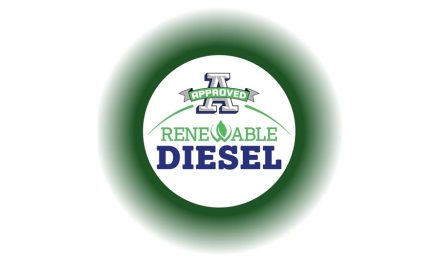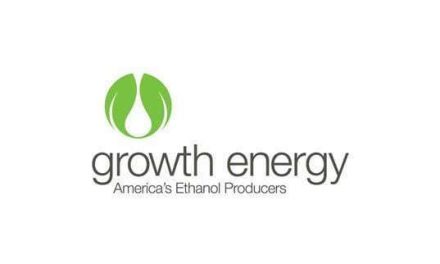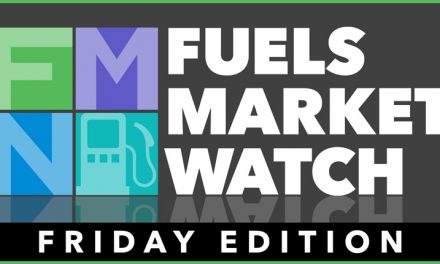“We’re going to continue to try to build the business across the platform,” said Sabia. “The brand is still very important to us, and obviously the very name of our company. We expect it to remain at the same level of importance going forward. We want consistent, ratable volumes through our terminals and obviously the long term commitments the brand brings are appreciable to that.”
Rick Dery, who managed branded sales and marketing under Cumberland leadership is still managing that operation under the new ownership.
Sabia noted that it is too early in the process to discuss any specific branded programs or promotions relative to future brand growth. That was also echoed by both Ashcroft and Campbell. “We look to be extremely prudent with our dollars in order to deliver the best value to our customers,” said Ashcroft. “We want to spend those dollars as if they were our own. That’s our obligation to our shareholders and our fiduciary responsibility. I think that you are going to see us be very diligent with our decisions. We are going to be bringing a disciplined approach in all of our dealings.”

Gulf has previously been heavily involved in sports sponsorships to promote the brand. For example, supporting the Boston Red Sox. Photo courtesy Gulf.
Where retail is concerned, the new Gulf operation will set itself apart from the common retail acquisition MLPs that have been seen in the space. “There are a few MLPs out there that play in the c-store suite, but I think, from our perspective, focusing on a particular area of the value chain and being good at what we do is really going to be our focus,” said Campbell. “And that’s remaining in the midstream area and being very, very good at what we do.”
While a significant amount of information and commentary was supplied on Gulf’s future branded fuel supply operations, no specifics were offered at this time related to future developments with Gulf’s retail platform, Gulf Express.
It was announced that in a related transaction Blue Hills Fuels, LLC, another ArcLight affiliate, purchased Gulf’s Assured Dealers business. The Assured Dealers business collects rent from over 200 owned or leased, but non-operated, independently franchised sites under the Gulf or Mobil brand that also purchase branded product under contract from Gulf.
Unbranded Market Growth
The unbranded supply opportunity was hardly neglected after Gulf began its earlier revitalization efforts, but there were challenges. If anything, that aspect of the business will be seeing more attention moving forward.
“The unbranded story for Gulf the last 10 years has been positive and uplifting,” said Walter Brickowski, Gulf’s Senior Vice President, Unbranded Marketing. “Going forward with the new company we’re going to continue to expand geographically, and the possibilities are, I’m not going to say unlimited but, very, very good. I mean we have a very large presence in PADD 1. Annually, we sell over 1.3 billion gallons of fuel.”
Brickowski noted that Gulf approaches the unbranded market in a fairly unique manner. “We built in some things a tad different than most people. I mean we do post a price every night, but we also market index-related contracts and NYMEX basis contracts,” he said. “The index could be Platts, Argus, OPIS—all over the markets we cover. We try to sell the majority of our product on a NYMEX related basis contract or an index contract. Only a small portion of our sales are from a posted price. That’s really not our cup of tea.”
Maximizing opportunities with the market volatility is the key to our business growth, according to Brickowski, and it also forms the bedrock of Gulf’s pricing on the unbranded side.
“What we really try to do collectively is take advantage of the daily volatility in the markets,” he said. “What I mean by that is that we primarily try to structure deals that have some pricing options for our customer. We utilize those tools to bring the value to our customer. Today’s a perfect example: the futures markets are down over three cents on gas. This gives us the opportunity to deliver a lower cost per gallon of product. Our customers should expect a call from us.”
From an unbranded market standpoint, Brickowski noted the company currently markets in approximately 21 states, and that product is sold in about 80 OPIS cities. “We started 10 years ago, probably selling in nine states and in maybe 15 – 17 cities,” he said. “We’ve made a pretty big march from Maine all the way to Miami.”
While it can be challenging entering new markets in the face of existing competition and both customer and terminal operator expectations, Brickowski feels Gulf has some notable advantages.
“One thing we do have are national retailers,” said Brickowski. “We have some national big-box companies and some national supermarkets that we’ve been in dialogue with. They’ve said, ‘if you go into this market or you go into that market, we would like you to supply us.’ We have the customer base to grow this fairly quickly, and I think volume-wise we’ll be pretty decent also.”
The majority of Gulf’s unbranded business, as is the case today, is expected to be gasoline. (Cont. Click next page below)











